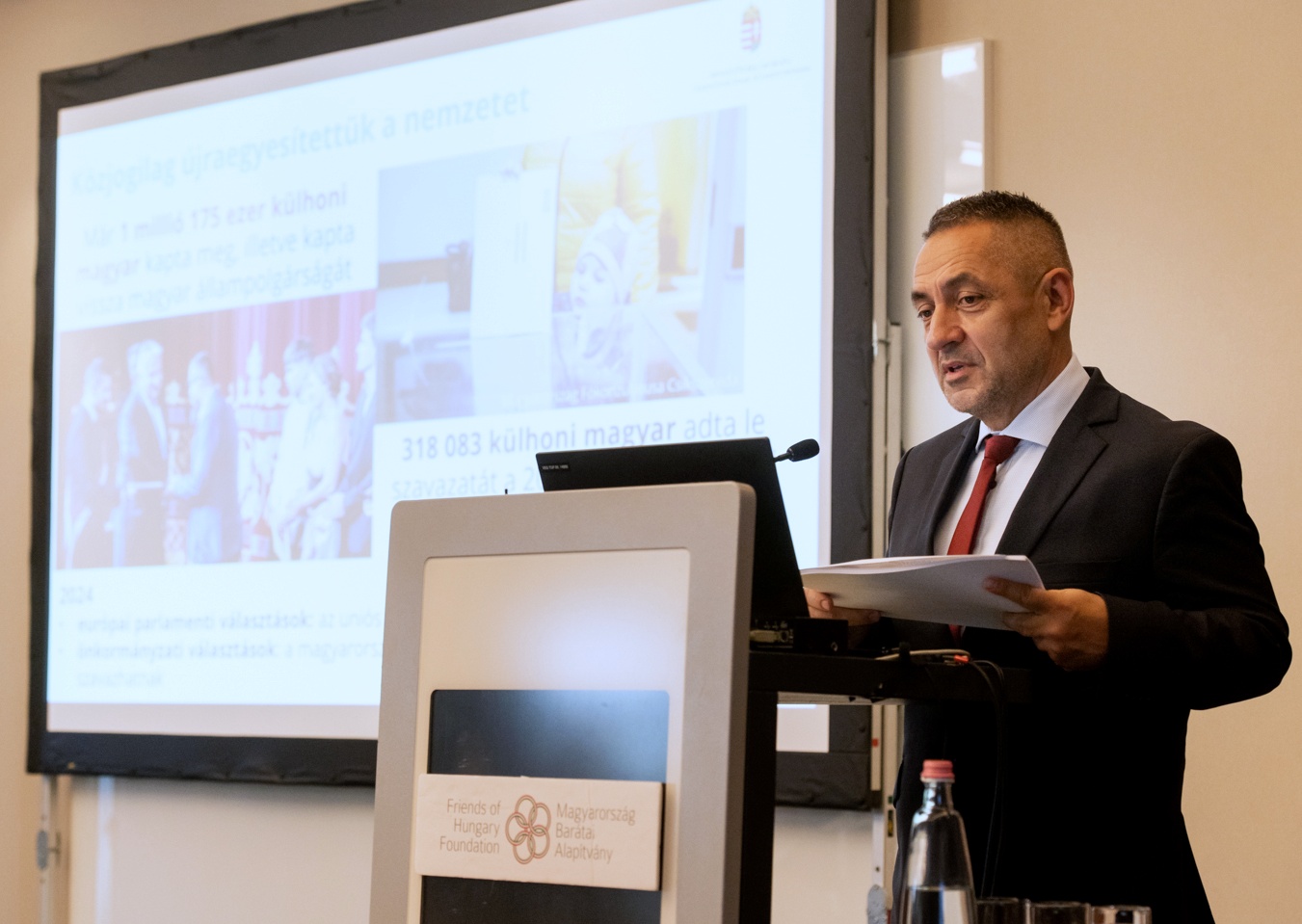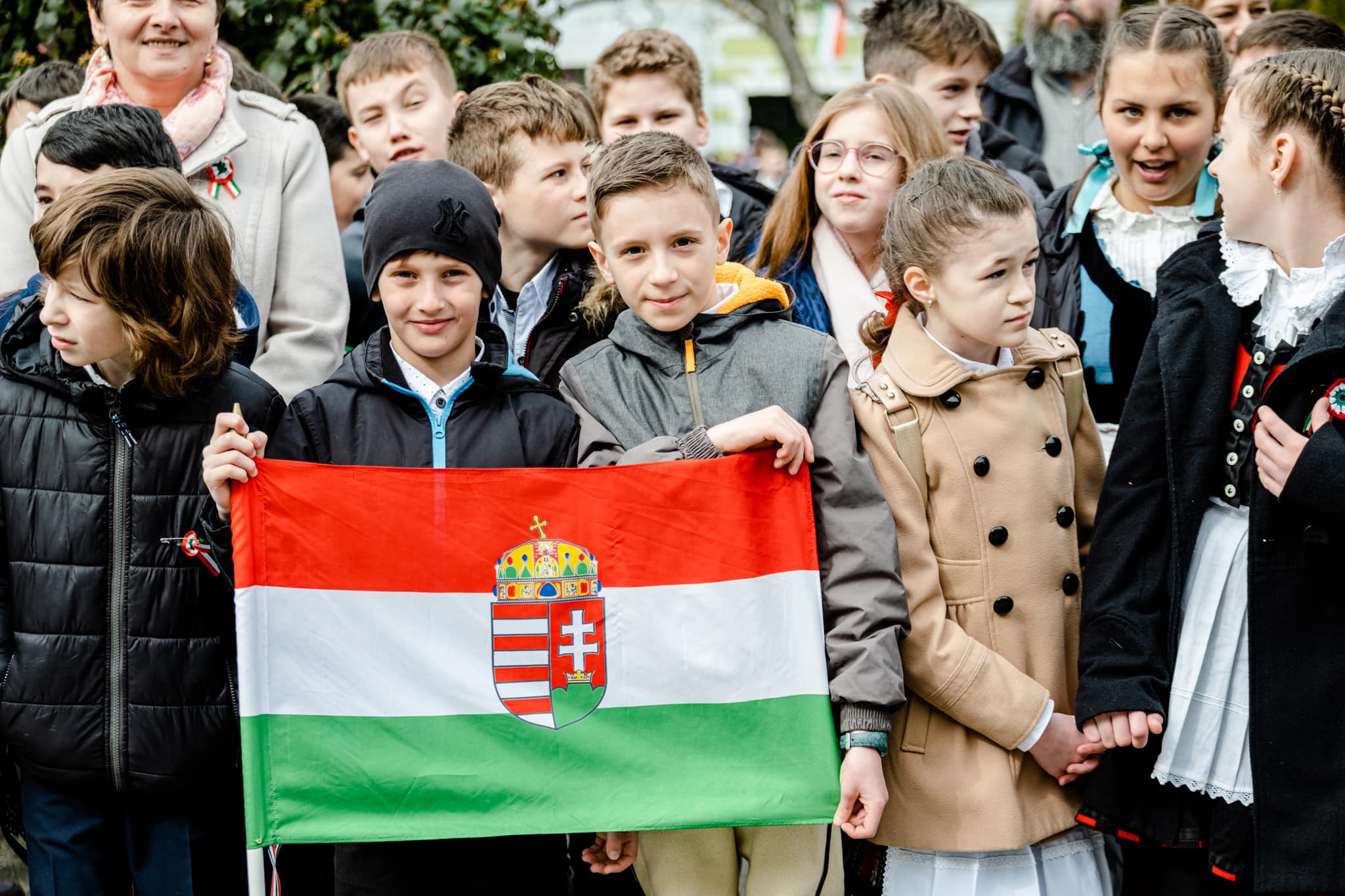The Double Rise festival in Transylvania attracted many young Hungarians from the country and beyond the border.Continue reading

Árpád János Potápi, Secretary of State for National Policy of the Prime Minister’s Office, gave a presentation at the 9th Friends of Hungary Foundation conference. As he recalled, the Hungarian nation is a global nation, of which Hungarians living in the diaspora are an integral part.
“Whether you have agreed or not, you are ambassadors of Hungary,” began the State Secretary, who stressed that historical events have made us a nation, especially in the modern era. He cited the example the Hungarians who chose to leave their homeland in 1956 due to the terrible consequences and terror of communism, but who nevertheless still contribute greatly to the Hungarian nation being well-known around the globe. The redrawing of our historical borders, population decline and growth, catastrophic events such as the tragedy of the Second Hungarian Army, the forced labor of Hungarians in the Soviet Union – these have shaped our history and the Hungarian nation, Árpád János Potápi recalled.
The fact that the nation has been able to overcome all the atrocities of history is largely thanks to the diaspora.
To take a look at the numbers and discover how wide the diaspora is, we can see that there are currently 1.5 million Hungarians in the United States, 350,000 in Canada, 70,000 in Australia and New Zealand, and around 350-400,000 in Europe. This makes a total of 2.5 million people. In this context, the Secretary of State stressed that “the Hungarian nation must be looked after in order to preserve its identity.”

Árpád János Potápi. Photo via Hungary Today
During his speech, the politician also spoke about the nation’s sustainability. He noted that we can talk about national policy since 1990, but until 2010, there were many ups and downs, no consistency, no forums to discuss the most important issues.
After 2010, it can be seen that unified national policy exists. The most important goals and motivations were also formulated at this time. These include the preservation and strengthening of national identity, support and contributions to encourage people to stay in their homeland, and family allowances.
Furthermore, Potápi also emphasized that the ultimate goal of national unification must also be worked for.
Ever since Hungary strengthened its national policy, it has taken inspiration from a number of countries that have formulated outstanding ideas, such as Israel, France, Ireland, and Armenia. Hungary has also received excellent feedback, for example on the issue of dual citizenship. Since it became a legally reunified nation, 1,175,000 Hungarians abroad have regained their citizenship, the secretary of state added.
2023 is the year of the “caring nation.” The Hungarian minority in Transcarpathia, the relationship between youth and the elderly, developments, and construction projects are of great importance, he stressed. The renovation of sports halls and schools, kindergartens, community centers, and the construction of such facilities are making a major contribution to achieving the goals set, the state secretary said.

Hungarian minority children. Photo via Facebook/Árpád János Potápi
Regarding schools, the secretary of state referred to special scholarship and travel programs for students. This year, in the framework of the Without Borders program, pupils in seventh grade can travel abroad to get familiar with the culture, the region, and to strengthen the relationship with the Hungarian community there.
This year, over 520,000 schoolchildren could participate on bus trips and more than 10,000 trips were organized since 2011.
He also explained that the Kőrösi and the Petőfi programs were introduced to help the Hungarian community in the diaspora to preserve their identity. The Hungarian communities abroad have a strong effect on the participants of the programs as they develop a special sense of belonging. “Hungary needs scholarship holders like them,” he highlighted, as they are familiar with national policy and show particular sensitivity due to their experience in dealing with the people of the diaspora.
At the end of his speech, Potápi also touched upon the situation of the Hungarian minority in Ukraine. Since the beginning of the Russian-Ukrainian conflict, one and a half million Ukrainians have arrived in Hungary.
For those fleeing the horrors of war, the country has set up the largest humanitarian program ever.
Hungary is also trying to help in Ukraine by building schools and medical institutions, and with charitable collections, he said. In fact, in 2023, the Hungarian government provided HUF 13 billion (EUR 34 million) to support the development of the Transcarpathian Hungarian community’s institutions. However, atrocities against the Hungarian minority continue, and anti-Hungarian manifestations are ongoing, the state secretary underlined. Examples include the demolition of the statue of the Turul bird (national symbol) in Mukachevo (Munkács) in 2022, or the events of recent weeks at the Mukachevo secondary school, where the principal, István Schink, was dismissed and the Hungarian anthem and national symbols were banned, he concluded.
Featured photos via Hungary Today